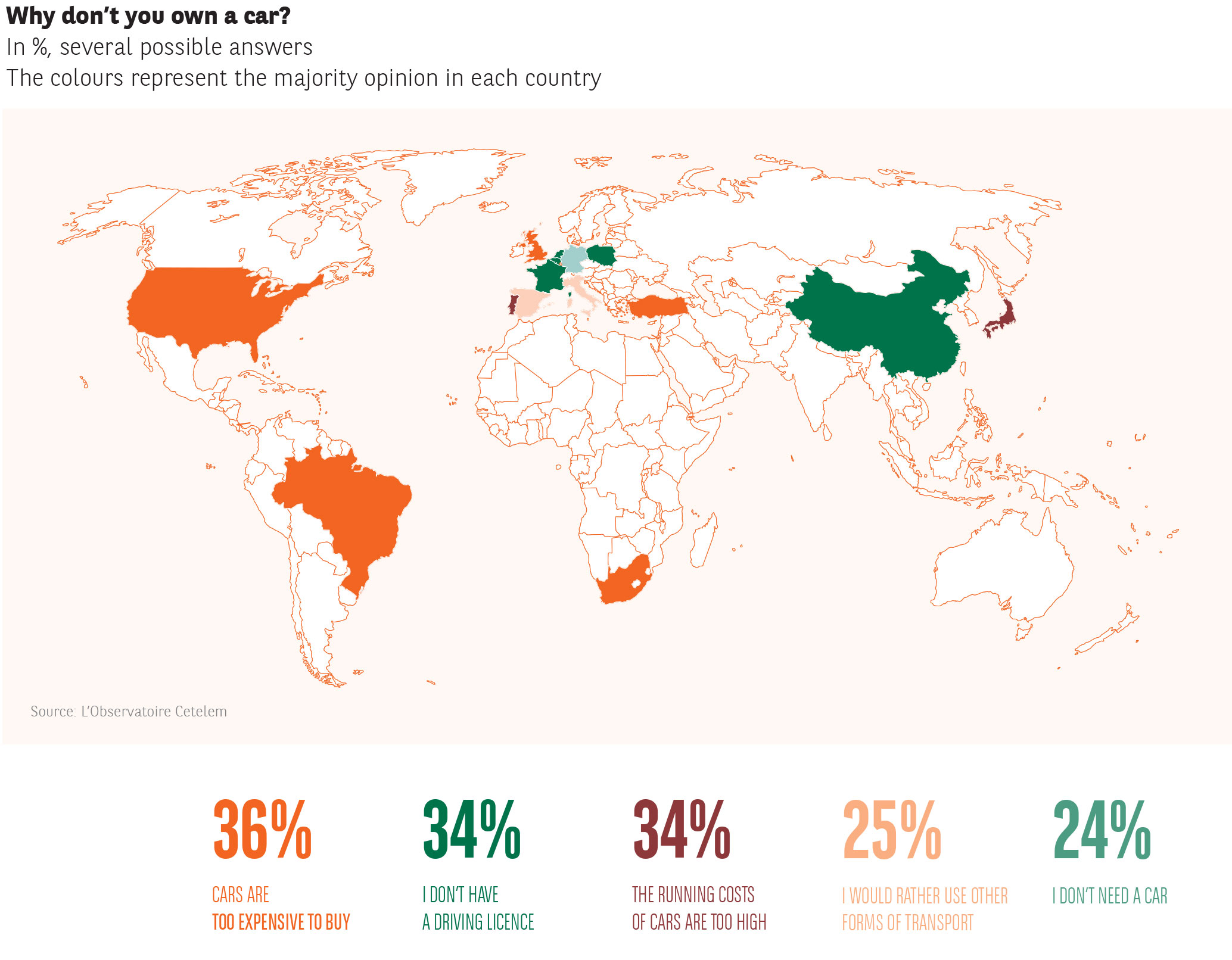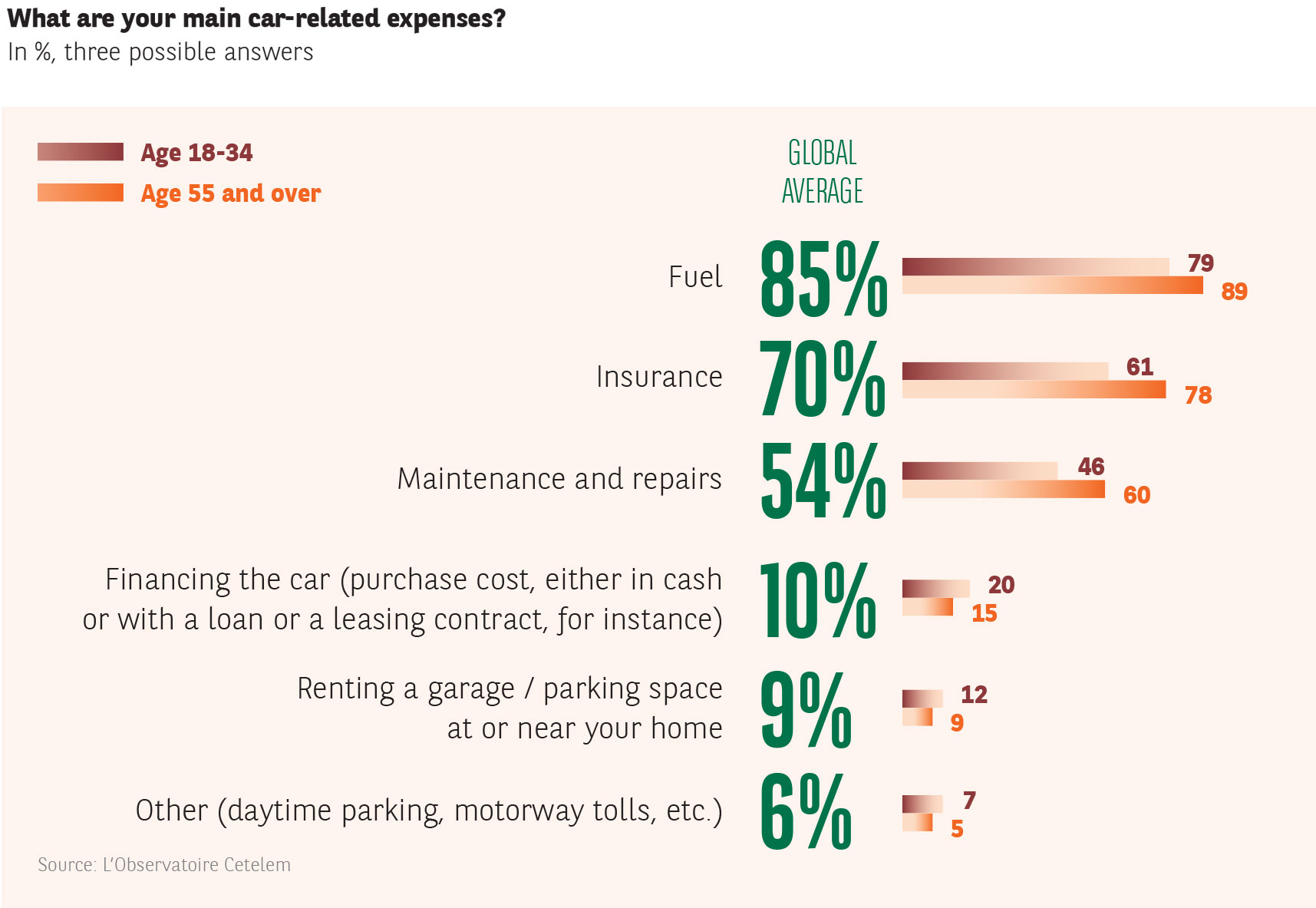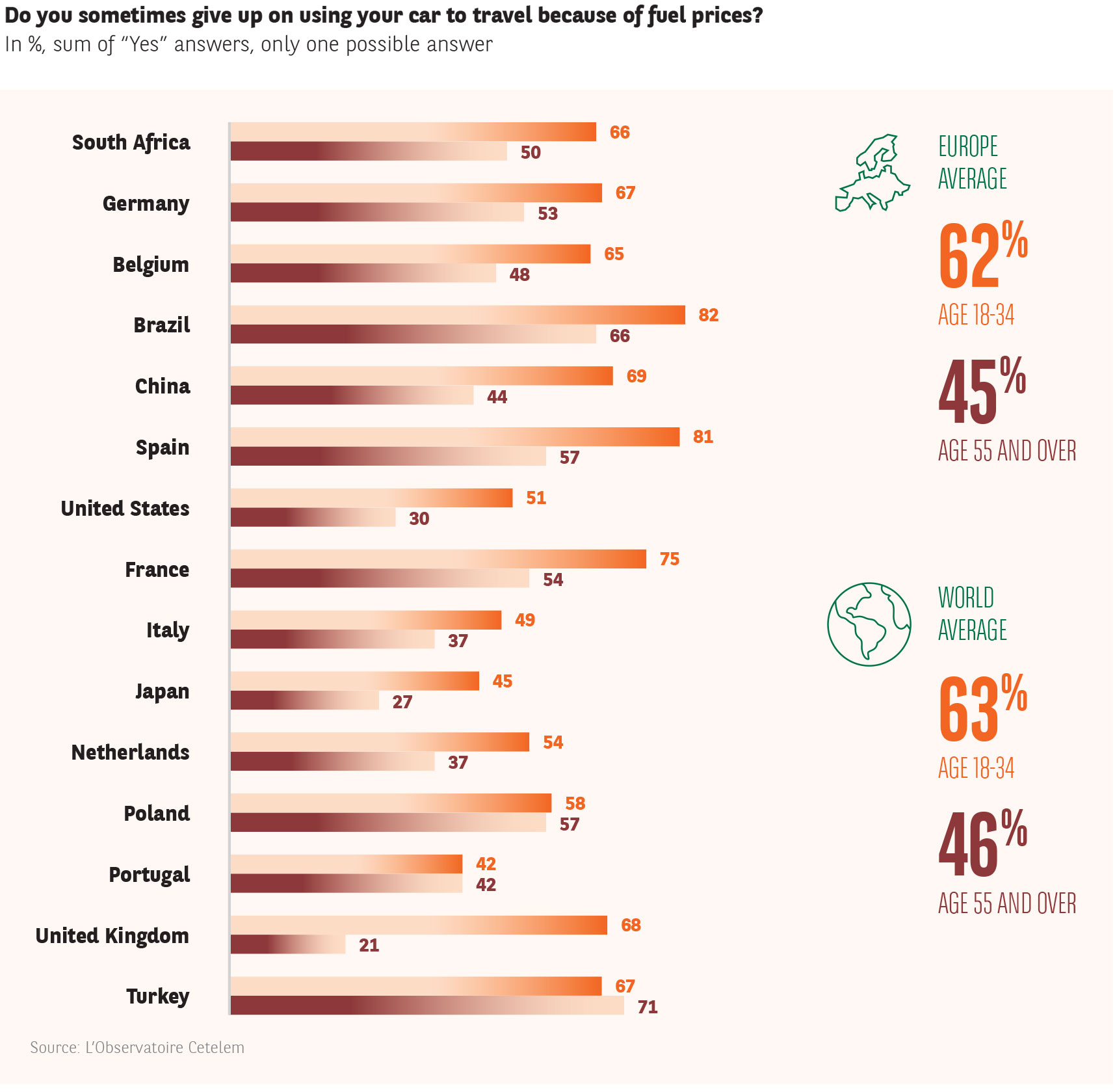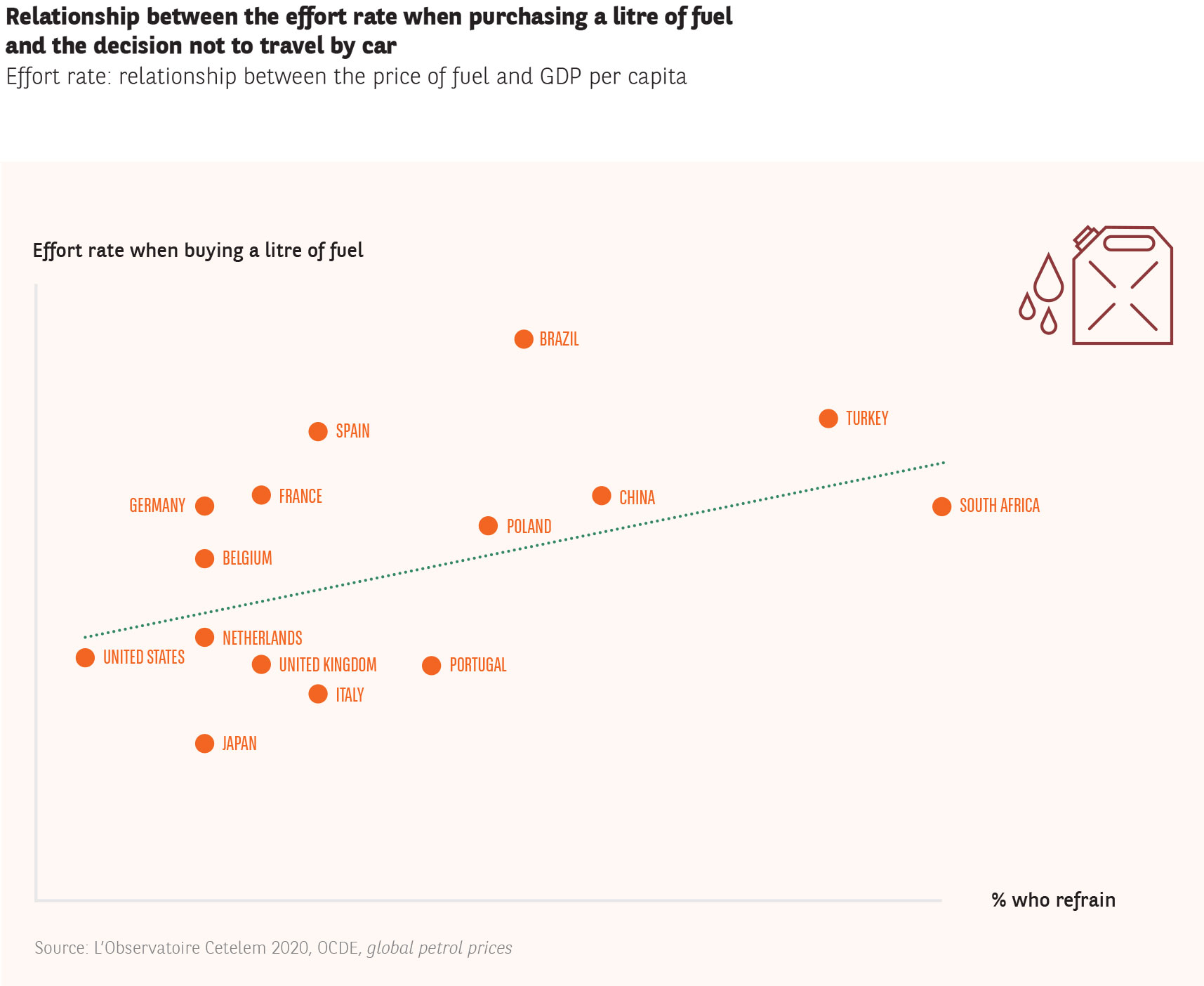A budgeting issue first and foremost
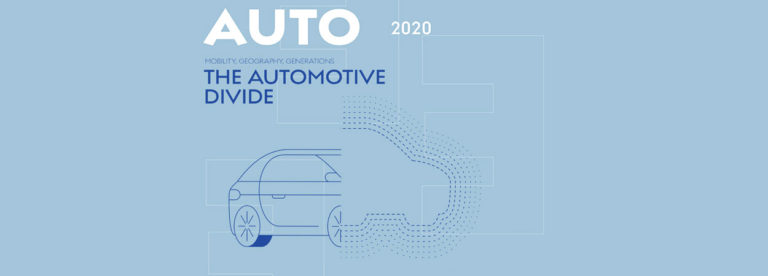

For many, cars are just too expensive to buy and their maintenance costs too high (36% and 34%). A high purchase price is more likely to be cited in the “emerging” countries – Turkey, South Africa and Brazil – where living standards are lower. One-third of those surveyed state that the reason is that they do not have a licence (Fig. 19).
FIG. 19 :
RUNNING COSTS EXCEED THE PURCHASE PRICE
Purchase price and running costs are perceived very differently by car owners, but the question of finance remains predominant. Only 18% believe that purchasing a vehicle is a signific ant outlay.
However, 85% of respondents cite fuel as being the most significant expense. This opinion is very strongly held in Poland and Brazil, much less so in the United States and the United Kingdom.
On this topic, which was at the root of the Yellow Vest crisis, the French express an equally clear opinion, with a result that is slightly above average (88%).
Insurance and maintenance costs come next in the list (70% and 54%). The Italians, Portuguese and Spanish are the most likely to cite the former (83%, 80% and 77%). The Chinese and Turks are the most sensitive to the latter (70% and 67%).
MILLENNIALS BEAR THE BRUNT OF MOTORING COSTS
Once again, the generation gap is significant when we consider these three main expense items.
79% of millennials, compared with 89% of seniors, put fuel at the top of the list of expenses. The gap is even wider when it comes to insurance and maintenance costs (78% vs. 61%, 60% vs. 46%). These differences seem to be explained by the fact that the young are only just entering the world of work and earning incomes that are typically lower. In the eyes of millennials, the freedom associated with cars comes at a cost. One that is often too high.
FIG. 20 :
FUEL IS TOO EXPENSIVE, A GOOD REASON TO LEAVE ONE’S CAR AT HOME
The issue of fuel costs also exacerbates the generational divide that is apparent when we examine vehicle use.
Overall, 1 in 2 respondents have given up on the idea of having a car due to the cost. This is true of 63% of millennials, but only 46% of over-55%. The gap is widest in the United Kingdom, where the young are three times more likely than their elders to turn their back on driving due to the price of fuel. In France and Spain, the difference is also significant (+24 and +21 points). Only Turkey stands apart, with seniors who are more sensitive to price than their younger compatriots (Fig. 21 and 22).
FIG. 21 :
FIG. 22 :
SENIORS AND RURAL POPULATIONS: LESS TAX, MORE MONEY
Another question asked to motorists confirms that, for them, the issue of fuel is ultimately a financial one rather than an environmental one. When asked whether governments should raise fuel taxes to promote greener forms of transport or lower them to increase purchasing power, the response is clear. 61% are in favour of the second option, while only 18% favour the first.
Seniors are the most likely to support the idea of lower taxes (65% vs. 55% of millennials).
Probably because it is harder for them to live without their car, rural dwellers are also keener on this measure than those who live in big cities. France is where the gap is the widest (25 points).
Geographically speaking, the generational differences are most striking in South Africa, Turkey, the Netherlands, Belgium and France. The Chinese stand apart in preferring to increase taxes so as to protect the environment.
Given the high levels of air pollution they face, 44% of the country’s population would opt for such measures, compared with just 34% who would prefer to see their purchasing power rise (Fig. 23).
FIG. 23 :

